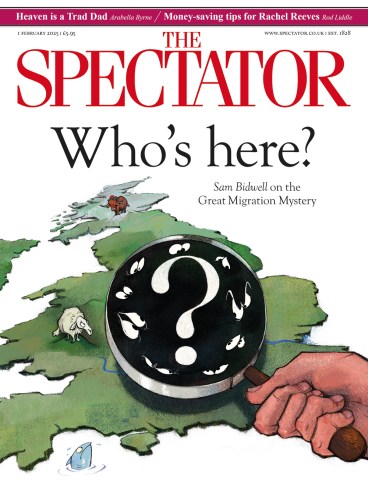
One of the pleasures of reading, often looked down on in literary circles, is when one warms to an author’s characters. Among the many delights of Mrs Calder and the Hyena, Marjorie Ann Watts’s second collection of short stories, was my feeling that here were people with whom I would get along. Ostensibly, they are undistinguished – from the hinterlands of society, whether by virtue of status, wealth or age; yet they reveal some irrepressible glint of antinomianism, a rejection of conventional judgments and standards, a certain anarchic glee.
In the title story, elderly Mrs Calder insists she is being accompanied by a hyena – ‘always a little on the edge of my vision, but definitely getting closer’. For her daughter, this is the latest disturbing manifestation of her mother’s lifelong eccentricity; for the hospital, to which her daughter has referred her, it is the probable onset of dementia. To the percipient reader, however, it is what T.S. Eliot called an objective correlative: the outward representation of an inner condition. An untamed, feral side of Mrs Calder reacts to what she perceives as human absurdity and the approach of death with savage, remorseless laughter.
As in the fiction of Penelope Fitzgerald, with whom Watts shares attributes, there runs through these stories the sometimes unnerving perspective of the visionary. Mrs Calder, oblivious to her daughter’s concerns, makes for the cemetery where her husband is buried and lies down in the damp grass:
Visions of an infinite, blazing, multicoloured graveyard… swelled through her like a great chorus. In the centre of this immense fairground sat the hyena: a small figure at this distance, but she could hear it laughing quite clearly. I’ll walk up there, she thought, when I have rested.
In another story, an actress famed for her beauty encounters a blind piano tuner, whose son she has rescued from an accident on his bike. Bored with her career and weary of the public gaze, she finds respite in the man’s sightlessness and their shared love of music as they sit together listening to a blackbird. Its enchanting song is recapitulated when she hears the son singing in a concert at Brompton Oratory, and is spellbound: ‘His long sustained notes soared up, part of some remote invisible world that one could only guess at.’

Watts began her career as an illustrator of children’s books, and her fictional children are no less evocatively drawn. In one story, an elder brother, oppressed by sibling rivalry, is robbed of his imaginary protective cohorts by a real-life encounter with a paedophile. It is the loss of his make-believe world and not the menace of the paedophile that is the trauma. In another story, a boy from a miserable tower block develops a keen naturalist’s eye through observing foxes in a spinster’s rambling garden. That quality in him dissolves the defensive aloofness of the woman’s snobbish brother when the two discover a shared delight in toy trains.
Watts is especially good on the alchemy that chance affinities between seemingly disparate sorts can generate. An extension of this is her sense of the liberation that attends a confluence between the natural world and the human spirit. Humankind, with its frailties and follies but occasional defiant triumphs, is portrayed within a world where birdsong, the scent of wild narcissi, the sound of water and the broad palette of skies complement the coolly ironic but compassionate voice of a born storyteller.








Comments